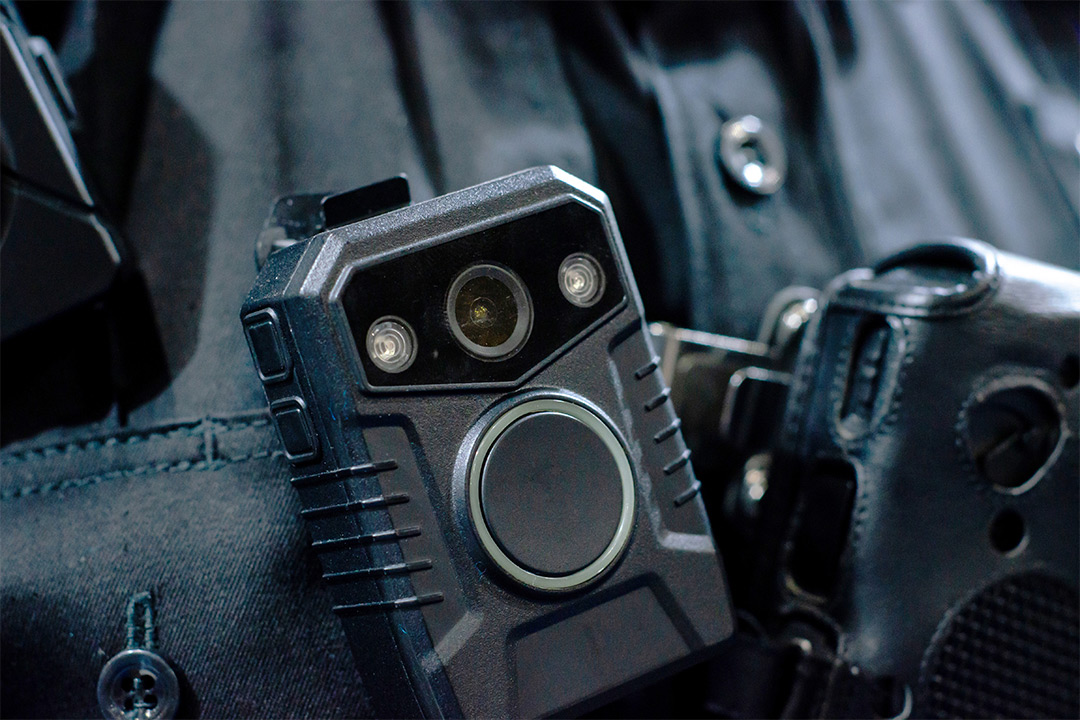RIT scientists developing machine-learning techniques to analyze body-worn camera footage
Professor Ernest Fokoue receives $1 million grant from DOJ and RPD to conduct three-year study
Shutterstock/Lutsenko Oleksandr
RIT Professor Ernest Fokoue received a $1 million grant from the U.S. Department of Justice and Rochester Police Department to use statistical machine learning to analyze body-worn camera footage and help improve police training.
A Rochester Institute of Technology professor is teaming up with the Rochester Police Department (RPD) to use statistical machine learning to analyze body-worn camera footage and help improve police training. Professor Ernest Fokoue from RIT’s School of Mathematical Sciences received a $1 million grant from the U.S. Department of Justice and RPD to conduct the study over the next three years.
RPD began implementing its body-worn camera initiative in 2016 to improve police-community relations and currently has about 500 body-worn cameras assigned to patrol personnel. Fokoue said the program has massive amounts of data that are ripe for analysis, but it’s far too much for humans to consume and analyze for trends. He believes using artificial intelligence is a great way to search the data for model behavior and could ultimately help the department instill trust in the public.
“The hope is that this is as objective as it gets,” said Fokoue. “The camera doesn’t decide what was happening at the scene, so the idea is to analyze what it picks up in an objective way. We hope to see patterns emerging through natural-language processing and to share the findings with other police departments around the country.”
The project has several specific goals. The project members hope to produce publishable datasets built from a model scanning RPD body-worn camera footage; video examples for the RPD to analyze for defensive and de-escalation tactics; an algorithm to transcribe body-worn camera audio and flag specific words; an algorithm to help compare written reports with facts observed by body-worn cameras; and algorithms to detect biased behavior by RPD officers and identify effective de-escalation tactics used by RPD officers.
“The Rochester Police Department is lucky that its location gives it easy access to world-class research universities,” said Adrian Martin, a data analyst for RPD. “Professor Fokoue is recognized internationally as a leader in the field of statistical machine learning, and we have enjoyed working with him for the past several years on other projects. The current grant-funded project will help RPD improve upon our already successful body-worn camera program by using our vast amount of footage for training, compliance, and increasing our transparency to the public.”
Martin reported that RPD creates, on average, 70 hours of footage every day — too much body-worn video for officers or supervisors to review it all.
“With the assistance of Dr. Fokoue and others at RIT, we will be able to build tools to help us flag specific videos for supervisor review; tools to monitor the entirety of our video footage for new training needs and opportunities; and we’ll be able to help the public better understand what our officers encounter on a daily basis without compromising the privacy of officers or members of the public seen on video.”
Professor John McCluskey from RIT’s Department of Criminal Justice will also serve as a key contributor to the project. Fokoue is currently searching for a Ph.D. student to help him conduct the study and is now accepting applications. Martin said RPD will also hire an analyst for the duration of the grant dedicated to the project and the position will be posted to the Government Jobs website.
To learn more about RPD’s body-worn camera initiative, go to the RPD website.







